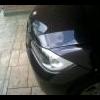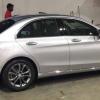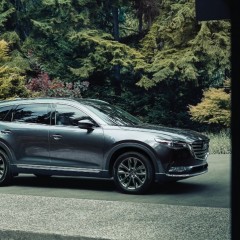Search the Community
Showing results for tags 'Route'.
-
Route 4 or Route 8? And what's the drive time? 5 hours?? Any worthwhile stops on the way for sightseeing and restaurants?
-
Will start this thread for users to share and query on their commonly use route from point A to Point B and cost of ERP. Anyone can share what’s the cost effective way of driving let’s say from Sengkang/Punggol to Tanjong Pagar from 730am?
-
Driving down from Kota Bharu to Cameron. Will route 66 or route 8 be a better option? Route 8 seems to be a more major road that is better maintained, while route 66 (d29) seems like the more scenic road?
-
Hi everyone, Anyone drove to Kuantan b4? i've got no GPS so a messy Malaysia map is my only tool. Anyone know of an interactive online map of Malaysia? Can anyone who drove to Kuantan can provide a good route (shortest distance)? Thanks in advance.
-
EW line train went on the wrong track to NS line....
-
Hi All, With the recent heavy rains, I understand that certain parts in Malaysia are now flooded. For those that have updated info or know which is the safer route to avoid the flood, kindly advise. I am only familiar with the Ulu Tiram -> Kota Tinggi -> Mersing route. (136km) Would this be more risk of flood compared to Air Hitam -> Kluang -> Mersing (220km) Thanks
-
I want to ride my push bike all the way around singapore, as close to the coast as I can. Starting from Punggol Jetty and ending back there. What is the best route? Naturally am not allowed on express ways. Should naturally include the full length of both east coast and west coast par... What else?
-
I wish to have our fellow drivers opinion of what type of road is safer to drive during very heavy downpour and bad visibility. Expresway or normal trunk road? Pls share your view as we are having bad weather now.
-
Can anyone advice me which is the fastest way to get there during 5.30 pmtraffic.
-
Hi, any one ever travel this new route of which opened lately ? Pls advise.
-
I have a question here. When you try to travel from Singapore to a certian location to Johore bahru, you will always get the Iphone map indicating that you must take the Tuas 2nd link, then you can reach your location, even though it will be easier for you to get to the location using the Woodlands check point. Any reason why ? and how can i get over this problem ?
-
I live in city area but haven't really travelled to Lengkong Tujoh before, so should I use:- Victoria Street > Kallang Road > Sims Ave > Left turn into the residential estate and thats it. This looks like a straight path for me from my starting point so would this route be easier? Or CTE > PIE > then exit at Jln Eunos and find a way there. I will be travelling there around 6:30pm
-

Cameron Highland to Ipoh.. which route should i take?
Chrispie posted a topic in Travel & Road Trips
Hi brudders... i have to choices.. can you guys advise which route is better? A is shorter.. but its mainly winding road. B is longer.. gg down the mountain and then proceed via highway. (but i think this route will kena toll) Thanks! Route A Route B -
Hi, if want top up at esso, which esso pump for the shortest route and back to sg? Thanks..!
-
Like to share what I saw on small section of Straits Times 20/11/2010. The temp route [2.1 km long] from JB Customs to SG will be replaced with a new route [1.2 km long, 4 lanes]. Trials run on 23/11/2010, switch over on 26/11/2010, fully operational Jan'2011. Therefore, expect some route diversions or delays. Drive with caution.
-
great. no more winding road...
-
Which route will you choose if you going to travel from Hougang to NUS - In term of FC? Option 1: Hougang Ave 2 -> AMK Ave 3 -> CTE -> AYE -> NUS ---------- About 25.1 KM Option 2: Hougang Ave 7 -> Tampines Rd -> KPE -> ECP -> AYE -> NUS ---------- About 28.2 KM Option 3: Hougang Ave 2 -> AMK Ave 3 -> AMK Ave 6 -> Lornie Rd -> Adam Rd -> Farrer Rd -> Commonwealth Ave -> Clementi Rd -> NUS ---------- About 22.4 KM.
-
yo bros.. i need directions.. or rather advice on the shortest route from lok yang way to yishun. All i can think of is AYE to CTE and exit yishun.. that seems to be very very long. I should be able utilize KJE ya?
-
hi all been searching through and seems like alot of routes for GOR or Melbourne is there anything worth self driving in sydney itself ? now currently planning a self drive for end of the year, and unfortunately the disc voucher for airline only for sydney airport. OC dont drive so i be the only driver. main target are animals (farm / zoo) and theme parks can recommend a good route ?
-
Hi bros and sis, wondering any of u guys/ladies could share some tips for the route from Sembawang MRT to Kitchener Complex, on morning timing ard 0800 to 0900, the best way and without ERP charges? For now I am travelling via Lentor then into CTE which hits $2.50 ERP and also another $2.00 before I reach kallang and into Lavender... kinda sucky as office has been shifted there so have to travel there no matter what.. thanks for all your help.. maybe mod could start to create a folder for the shortest routes without ERP or something.. for our guys and ladies to use it as references.. Cheers!!
-
Will be move to Hillview and my office is in Ang Mo Kio. Will need advise as to which is the best route to go in the morning. How bad is the morning traffic jams along Upper Bukit Timah road into PIE and need to know if there is a jam from PIE into Lornie Road (towards Braddell). Will hit the road at about 8.00am. Any contribution is greatly appreciated. Thanks!!
-
By GREG KABLE Tough emissions standards worldwide and soaring manufacturing costs in Germany are behind BMW's decision to switch from high-revving, naturally aspirated engines in its M high-performance vehicles to turbocharged direct-injection powerplants, beginning as early as next year. The move, which could alter the character of BMW M models, places question marks over the immediate future of the M3's 4.0-liter V8 and the M5's 5.0-liter V10. Both engines will make way for forced-induction engines in coming years, according to high-ranking BMW sources. The first M vehicle to make the move to the new turbo powerplants is the X6 xDrive M, which will challenge the Porsche Cayenne GTS and the Mercedes-Benz ML63 AMG. Set to appear next June, the X6 xDrive M will be the first model to run BMW M's new twin-turbocharged V8. This engine is also earmarked for the next-generation M5, due out in late 2010. Based on the standard X6 xDrive 5.0i's 4.4-liter 90-degree V8, the new twin-turbo unit is said to match the current M5's naturally aspirated 5.0-liter V10 for power at 500 hp, while providing as much as 516 lb-ft of torque. This should be enough to provide the M-powered X6 with 0-to-60 mph acceleration of less than 5 seconds and top speed limited to 155 mph. "In terms of overall performance, the new engine doesn't give anything away to the powerplant we run now, but it delivers much better consumption and lower emissions," a senior BMW M official told AutoWeek. The move comes as Mercedes-Benz's AMG performance unit is planning to turbocharge its 6.2-liter V8 when it introduces direct injection in 2010. Besides developing new turbocharged engines, BMW's M division is also planning to equip new models with features such as automatic stop/start and brake regeneration in a bid to cut fuel consumption and emissions. BMW is also testing a new driveline incorporating technology from next year's X6 ActiveHybrid, with a nickel-metal-hydride battery pack used to power an electric motor to boost performance levels.
- 4 replies
-
- Merc
- performance
- (and 5 more)
-
Business Times - 19 Sep 2008 By R SIVANITHY IF YOU want a front-row lesson in first-class financial obfuscation for structured products, then look no further than the way the recently collapsed Minibond Series 3 notes was packaged and marketed. Up to $200 million of these notes were sold to a gullible retail public who probably thought they were buying a five-year bond issued by six leading banks that paid a 5 per cent coupon per year but were in reality, not only exposed to the US housing market but also to a complex credit default swap arrangement whose substantive party was the now-bankrupt Lehman Brothers. The cover of the Pricing Document prominently stated that the issue was credit-linked to six financial institutions, namely Barclays Bank, Citigroup, Deutsche Bank, Goldman Sachs, UBS and UOB - these banks being defined as Reference Entities or REs. Much was made of the fact that the viability of the notes depended on whether these six banks or REs would go bankrupt and there are repeated warnings to this effect throughout the document. Investors were given plenty of information on the credit ratings of these six REs and links to their websites while Lehman is listed only as the Arranger in small print. The fine print at the bottom of the cover, however, states that Lehman is also Swap Counterparty, besides being the arranger. Not many retail investors would have seen this, and if they had, few would probably have understood the importance of this information. More on this later. Investors, however, were urged to read the Base Prospectus in conjunction with the Pricing Statement. In the former's page 24, it is stated that 'the Notes are intended to provide investors with a coupon for assuming exposure to the credit risks of companies or of sovereign states, that is, the Reference Entities'. 'By acquiring the Notes, investors can gain exposure to the credit risks of the REs without directly holding debt obligations of the REs, for example, bonds issued by the REs.' Note that the language used creates the impression that gaining exposure to the credit risks of the six REs is something desirable - and, by extension, this suggests that the notes are good investments - when in reality, the key to the whole issue is in the words 'without directly holding debt obligations' of the REs. In other words, the six REs are not participants in the notes, receive no money from the issue and are not issuers of the notes. Instead, the next sentence reveals all: 'This (exposure) is achieved by linking payment of the principal and/or interest on the Notes to an RE's default.' Who provides this link? In all the documents, this is given as Minibond Ltd but this is a special purpose vehicle with only US$1,000 in capital. The substantive party behind Minibond Ltd is most likely Lehman Brothers. Here's how it works. Lehman most probably owned securities in the six REs. In order to hedge itself against a default by any of these REs, it set up Minibond to offer notes to the public. Minibond offered these notes with attractive terms and because of clever marketing and pricing, collects a certain amount of cash from retail investors. This money is then used to buy securities - in the case of Series 3, it was collateralised debt obligations (CDOs), most probably on US mortgage instruments. Minibond then collects the cash flows from these CDOs. In order to pay investors the quarterly coupon and to ensure no problems with currency/interest rate fluctuations, it swaps these cash flows with a counterparty, which is Lehman. It is stated elsewhere that if the swap deals fail in addition to an RE default, the whole issue will be terminated. Thus, since Lehman has failed, so has the issue. The crux of the entire deal appears on page 17 under Credit Default Swap where it is stated that Minibond has an agreement with Lehman in which Lehman pays Minibond a premium for insuring Lehman against credit losses on the REs. In effect, the money that Singapore retail investors exchanged for the notes were not for any bonds issued by the six names that appeared on the cover of the prospectus but instead, went towards insuring Lehman against losses in its portfolio. The quarterly coupon investors received was not interest from the six REs but instead, Lehman paying an insurance premium, partly financed by cash obtained from CDOs. In short, Lehman structured a synthetic derivative product to hedge its own exposure to various instruments and linked it to the default likelihood of six major banks. Should the true nature of the instrument have been disclosed upfront? Yes, especially since it was marketed to retail investors - though it has to be said that many other notes and products have been sold in a similar manner and the only reason that the poor disclosure of this particular series of notes surfaced is that Lehman went bust. Had it not, or had it been rescued, the coupon payments would have continued as per normal and no one would have been the wiser. Moreover, while it is possible to piece together the actual substance of these notes from the documents available, it is a tedious process and arguably not within the ability of the average retail investor. There are many issues also unresolved - for one thing, how many other similar products are out there? How could the authorities allow the conflicts of interest inherent in one party from being the arranger, issuer and swap counterparty? How is it that, if Lehman alone performed all these functions, there was virtually no disclosure of Lehman's financial position or credit rating? Instead, investors' attention was focused on the six REs - wrongly, as it turned out. Finally, if disclosure was weak, then so was knowledge among distributors. Some brokers did not understand the true nature of the instrument and sold it as a bond. Maybe the name had something to do with it, though as investors have now found out painfully, what they had bought was not a bond but a convoluted swap-based instrument. Thus, should such products be allowed to continue to come into the retail market?











